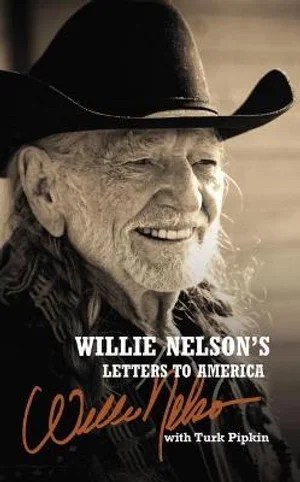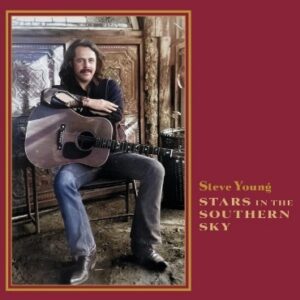James E Akenson
Sam Cooke mentioned that he didn’t know much about the history, French, geography he took…or other subjects. I’m not quite as deficient as what Sam Cooke made himself out to be. BUT…I do know that I don’t know a whole lot when it comes to philosophy.
Just enough philosophy knowledge to make the pride of Abbott Texas….Willie Nelson …. as the focus for this discussion. Sounds a bit strange now, doesn’t it? Willie Nelson and philosophy. Well, hang-on and let’s see if we can make some sense of it.
Working on my B.A. degree at the University of Minnesota I majored in history and minored in political science. I picked up some knowledge of philosophy reading Carl Becker’s The Heavenly City of the 18th Century Philosophers. Even today it is important. The Yale University Press site states that The Heavenly City has continuing relevance within the context of current discussion about the Enlightenment.
Now that’s BIG since the enlightenment influenced the U.S. Founding Fathers and the U.S. constitution.

Eccentric Professor David Noble in American Intellectual History required The Heavenly City. David Noble had a bad back, poor eye contact, and a memorable step-out-of-history-and-become-a-saint introduction to every lecture. Noble’s end-of-the- year lecture on James Gould Cozzins with “Don’t piss up the wind, Jack” is hard to forget.
Graduate school reading helped get me a PhD at the University of Wisconsin, Madison I read a wide variety of goodies that included philosophers such as Wittgenstein. I’ve still got the type written note cards done on a portable Olympia typewriter. Trust me, you don’t want to know details about Wittgenstein thoughts or some other philosophers I learned a tad about.
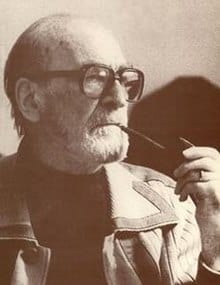
That goes as well for Mircea Eliade. I don’t know if I just heard about Eliade or I actually read his Sacred and Profane: The Nature of Religion. I do know that it became important in my life when I served as Co-Chair of Tennessee Tech University PhD student Randy Williams’ committee.
All of Dr. Randy Williams’ discussion treated Eliade as central to his ideas about Country Music. Williams’ dissertation The Lost Highway: The Dichotomy of the Sacred and the Profane in Early Country Music, 1921-1957 tells it all. It’s also the basis for Randy’s FaceBook page you should visit.

Plus…..Randy Williams also loves Jean Paul Sartre and used him in his dissertation dealing with authenticity in Country Music. Somehow, somewhere I picked up enough about Sartre to be able to react to Randy’s ideas when he mentioned Sartre.
My friend Pamela Jane King often mentioned philosopher Soren Kierkegaard in our conversations years ago. As a result, I could react somewhat appropriately when Randy Williams wanted to use Kierkegaard in his Country Music dissertation.
So…despite not being into philosophy big time…it’s played a surprising role in my professional life and particularly in thinking about Country Music. Combined with my History and Political Science background it all gave me just enough background to deal with lots of ideas.

All my philosophical smattering gave me an appreciation and enjoyment for Willie Nelson’s Letters to America. Daughter Ashley gave it to me as a Christmas Stocking Stuffer. That means Letters to America shouldn’t be heavy-duty reading that taxes the brain excessively.
But…as Randy Travis sings….On The Other Hand… Letters To America made me think in a ‘soft,’ enjoyable, and significant way. There are indeed some heavy-duty ideas flowing through Letters To America.
First of all, Willie Nelson seems to be an example of the continued power of religion. Randy Williams dissertation on the Sacred and Profane illustrates the tensions and contradictions in Country Music. Willie Nelson’s life includes both ends of the spectrum of the Sacred and Profane, Heaven and Hell, Sinner and Saint.
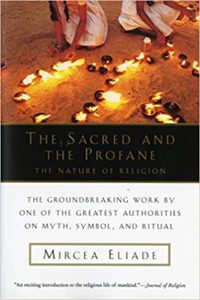
Willie’s includes Heaven and Hell in Letters To America. In one verse Willie claims that heaven and hell aren’t the usual streets paved with gold or hell a firey furnace. Willie sees heaven as being in a woman’s embrace and hell as being when his lover is absent.
Willie seems deeply connected to his childhood home and Methodist church in Abbot Texas. Yet, Willie doesn’t sound like a conservative evangelical Christian who believes you must be saved by accepting Jesus as your personal saviour. To Willie one ‘chapter’ says God Is a Four-Letter Word. God is love! Get it? A four-letter-word L-O-V-E. He’s not into the idea of the Big Guy, Big Eye in the sky but he does believe God answers prayer.
Second, small town Texas roots continue to influence Willie, his ideas, and his daily life. Abbott Texas south of Dallas keeps playing a part in Willie Nelson’s life. He owns his own town, Luck, Texas that was built for a movie. Along with Willie’s sister Bobbie…she just passed on to glory at ninety-one….their gospel band The Bells of Joy play Easter services in a chapel in Luck. Willie also has a ranch west of Austin, Texas.
Third, over the years Willie has developed an inclusive, compassionate view of humanity as well as animals. Willie likes being out performing and being able to see the faces of my audience, men and women, young and old, white, brown, black, and every shade in between. He mentions racial injustices such as Black Americans being four times more likely to get busted than their White neighbors for using marijuana. Thirty plus years of Farm Aid concerts shows Willie cares about ordinary rural Americans as opposed to large corporate farming.
Along with daughter Amy, Willie teamed to rescue a heard of seventy horses that were headed-to-the- slaughterhouse. Willie even held a lot of respect for a snake named Charlie that often sunned himself on the stone sidewalk of his Texas ranch. And, Willie loves sitting on the porch listening to the coyotes howl.
Fourth, Willie Nelson is a master of words. He’s a songwriter supreme. Talk about a tough job. As Merle Haggard sang you’ve got to tell a story in-a-few-short lines that become part of peoples lives and represents life to them. Willie started writing songs in elementary school. He’s even working on a new song. The first two lines are so clever.
If you don’t leave me alone.
I’ll find someone who will.
Whether it’s major, iconic hits like Crazy, I Fall To Pieces, On The Road Again, or Whiskey River the word play is simple, powerful, and engaging. Even songs I didn’t know engage us. I love When Willie Went Up to Heaven.
What if there’s a second coming
But Jesus is afraid to show?
Wish I had his power with words!
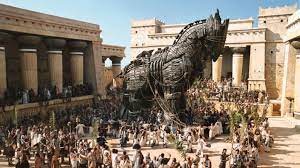
Overall, Willie Nelson’s Letters to America seems to have some heavy-duty thoughts clothed in sheep’s clothing…or a Trojan Horse. He’s developed a practical world view that borrows from lots of sources. Willie is grounded, deeply rooted in his Texas past, present, and future. After all, Willie did write Three Days about yesterday, today, and tomorrow. To me that’s practical and rooted in reality.
That just goes along with more philosophy things I learned at the University of Minnesota…Williams James and PRAGMATISM I remembered William James as I thought about Willie Nelson. And…a recent 2022 issue of The New York Review of Books included William James in a major article. Willie Nelson clearly has a wide-ranging set of ideas that work for him, they’re practical…they’re pragmatic.
So….what does my over educated, academic eye think of this little Stocking Stuffer from Christmas 2021? Quoting Tim McGraw I like it. I love it. I want some more of it!
Willie Nelson’s been part of my personal and professional life for many years. I came away with a sense of enjoyment, but a deeper appreciation for all of the astonishing songwriting skills, the arrangement of simple words into powerful messages that stay with me and keep-on-giving-and-giving.
The set of ideas making up Willie Nelson’s world view are welcoming, inclusive, yet rooted in his Texas conservative Christian Methodist upbringing. He hardly qualifies as a Conservative Evangelical Christian, but he isn’t negative or hostile to his Methodist upbringing. He just added a lot of extra ideas from different world views to shape his personal world. Willie Nelson accepts and embraces the diverse world in which we live. Willie Nelson recognizes all the injustices done to people who don’t look like him…or me.
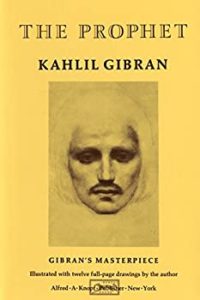
Willie’s even read Kahil Gibran’s classic The Prophet that deals with love, marriage, children, giving, eating and drinking, work, joy and sorrow, houses, clothes, buying and selling, crime and punishment, laws, freedom, reason and passion, pain, self-knowledge, teaching, friendship, talking, time, good and evil, prayer, pleasure, beauty, religion, and death. That’s just about every topic Willie discusses in Letters to America.
We should all do so well. Willie Nelson admits his flaws. At the end of Letters to America he pens a letter to his-younger-self nicknamed Booger Red. He feels he’s accomplished a lot by believing in the powers of love and music. He closes with two songs…Goin’ Home and finally On The Road Again. Goin’ Home shows Willie’s roots as he tells the Lord that the closer he gets to home the more I wanna be there.
But for now, Willie Nelson wants to be on On The Road Again where he can play his music and see the diverse faces in his audience. Paraphrasing a great song from my Baptist Sunday School days Red and yellow, black, brown, white they’re all precious in Willie’s sight. Willie Nelson loves the diverse people of the world. I’m ready for Willie Nelson: Letters to America Volume 2.

